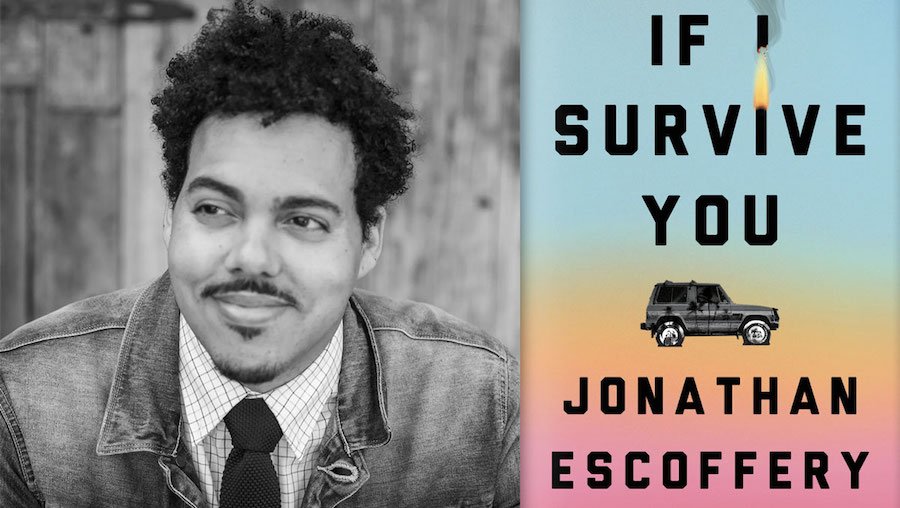Happy Leap Day, loyal readers! Thank you for being here.
As you know, this newsletter focuses on the best articles on race, education, and culture. The past year or two, however, finding pieces on race has become more challenging. (It’s certainly harder than it was in 2020.) I could speculate as to why this is. I could comment on the state of journalism. I could share my gut feelings about what’s happening at publications and the decisions their editorial boards are making. But really, I just have to extend my reach and look for lesser-known journals — journals like Passages North, the annual literary journal sponsored by Northern Michigan University, “an accomplice to LGBTQIA+ communities, Black Lives Matter, and abolitionist movements wherever they may be found.”
I’m excited to announce that this month’s article comes from Passages North. We’ll be reading and discussing “In Flux” by Jonathan Escoffery.
“In Flux” is an exquisitely written piece about race, growing up, and belonging. Here’s what I wrote when I first featured the article a couple weeks ago:
“It begins with ‘What are you?’ hollered from the perimeter of your front yard when you’re nine, younger probably. You’ll be asked again throughout junior high and high school, then out in the world. The askers are expectant. They demand immediate gratification. You immediately resent this question.”
This is how Jonathan Escoffery begins “In Flux,” a phenomenal coming-of-age story about identity, belonging, and what it means to be Black. It’s technically a work of fiction, an excerpt from If I Survive You, nominated for the National Book Award. Though not strictly autobiographical, the piece feels true to Mr. Escoffery’s views of his lived experience. Written in second person, it tells the story of an American boy, the son of Jamaican parents, who struggles to affirm his racial identity.
Depending on his context, the main character feels shame because he never fits in. Neighborhood kids want to know why his mom talks funny. When he asks his parents, “Am I Black?” they equivocate. At school his teachers wonder how he learned to speak so well. The Black kids on the playground find him befuddling.
“Somehow you keep falling short,” Mr. Escoffery writes. “How can your Blackness be so tenuous?”
As you may be able to tell from my blurb, “In Flux” contains many layers and nuances. It is not a piece that is easily taken in and summarized. And it will no doubt promote deep discussion. I highly encourage you to read it.
In addition to encouraging you to read the article, I would like to invite you to join Article Club this month to discuss “In Flux” on March 24.
If you’re interested, this is how things will go:
This week, we’ll read the article
Next week, we’ll annotate the article as a group and share our first impressions
The following week, we’ll listen to a podcast interview with Mr. Escoffery
On Sunday, March 24, 2:00 - 3:30 pm PT, we’ll discuss the article on Zoom.
If this will be your first time participating in Article Club, I’m 100% sure you’ll find that you’ll feel welcome. We’re a kind, thoughtful reading community. Feel free to reach out with all of your questions.
So what do you think? Interested in reading the article and joining our discussion? All you need to do is sign up below. Hope to see you there.
Chewy, who belongs to loyal reader Eric, enjoys eating large amounts of baked goods, especially apfelkuchen, directly from the kitchen counter. Want your pet to appear here? hltr.co/pets
Thank you for reading this week’s issue. Hope you liked it. 😀
To our 5 new subscribers — including Joseph, Jana, and Elliot — I hope you find the newsletter a solid addition to your email inbox. To our long-time subscribers (Wanda! Winter! Willow!), you’re pretty great, too. Loyal reader Clay, thank you for sharing the newsletter and getting the word out.
If you like Article Club, please help it grow. I really appreciate your support. Here are two ways you can help out:
❤️ Become a paid subscriber, like Jeremiah (thank you). If you’ve subscribed for free for a long time, and you appreciate the articles and author interviews, or if you’ve joined one or more discussions, I encourage you to take the leap. You’ll join an esteemed group of readers who value the mission of Article Club. Plus you’ll receive surprise perks and prizes. It’s $5 a month or $36 a year.
Subscribed
📬 Invite your friends to subscribe. Know someone who’s kind, thoughtful, and loves to read? I’d love it if you encouraged them to subscribe. Word of mouth is by far the best way to strengthen our reading community. Thank you for spreading the word.
On the other hand, if you no longer want to receive this newsletter, please feel free to unsubscribe. See you next Thursday at 9:10 am PT.
















